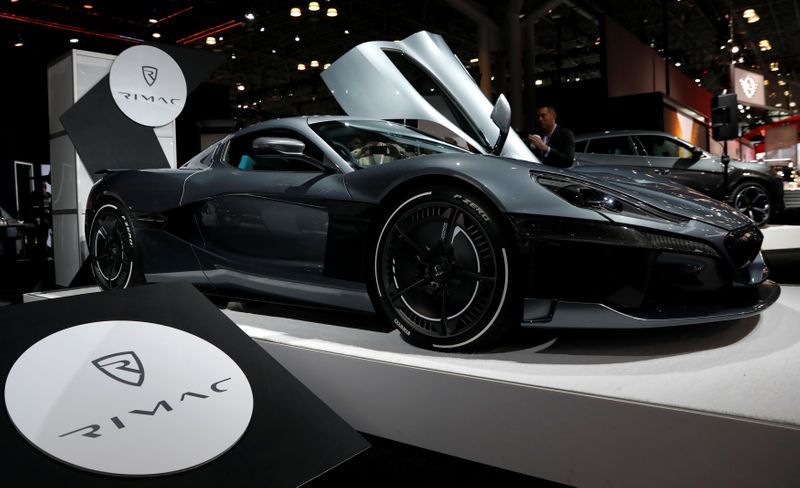FRANKFURT (Reuters) - A surge in the use of special purpose acquisition companies (SPAC) for raising money for electric vehicle start-ups could harm the long-term prospects of the industry, Mate Rimac, founder of electric hypercar maker Rimac, said on Thursday.
Managers of SPAC companies are not held to the same level of liability about potential growth prospects as managers who raise cash via an initial public offering (IPO) on equity markets, spurring concerns about an investor bubble.
"You can get so much money now for companies that do not have a product. Personally I am scared a little bit," Rimac told the Financial Times Future of the Car summit on Thursday.
"When we go public, I want to show the numbers, to go public on reality, and not on hype," Rimac said.
"I hope that these SPACs will be successful. A lot of them won't. I hope it won't hurt the industry too much.
SPACs are small companies with an established track record of filings at the United States Securities and Exchange Commission (SEC) which are then used to buy up promising companies in high-growth sectors.
Wall Street has used SPACs to sidestep the IPO process, with their shorter preparation time and fewer legal hurdles making it easier to tap the investor optimism towards electric vehicles that helped Tesla (NASDAQ:TSLA) reach a $554 billion valuation.
"We were profitable last year, and we want to be profitable this year as well," Rimac said, adding that he built up his company, which was founded in Croatia in 2009 and now employs 900 people, by focussing on profitability rather than growth.
"For a start-up, we have built up steam the hard way," he told the FT's web based conference, adding that sometimes he feels like he is missing out by not pursuing the SPAC path.
Rimac had a hard time raising money in 2011 after electric car maker Fisker went bankrupt and with Tesla yet to establish itself as a high growth company.
Rimac was thus forced to raise money by taking on development contracts for other carmakers. Today Porsche, Kia and Hyundai are shareholders and Rimac makes electric powertrains for supercars built by Aston Martin, Koenigsegg and others.
"We started with hypercars and we are now working with more mainstream vehicles," Rimac said. "Want to be the leader in high performance electric vehicle components. Want to be the intel inside."

Rimac declined to comment on speculation that he would buy Bugatti, but added cryptically "maybe soon".